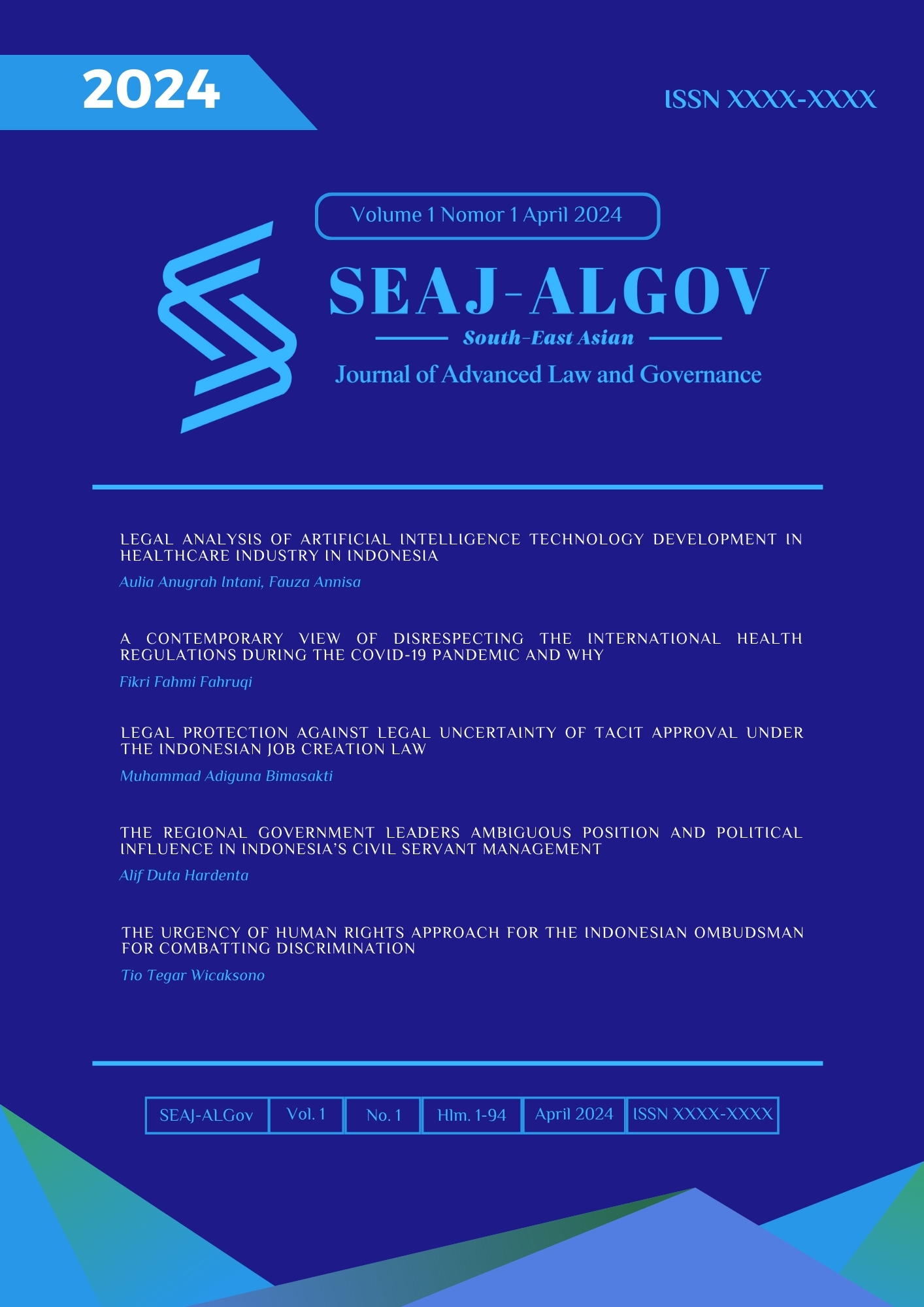The Regional Government Leaders Ambiguous Position and Political Influence in Indonesia’s Civil Servant Management
Abstract
The regional government leaders in civil state management and bureaucracy in post-Reform Indonesia positioned as both leader in regional political power, while on the other hand they also had the power as the administrator of civil service management and its bureaucracy. This study aims to analyse on the impact of this authority as mandated by the laws in autonomy and regional governance on civil servant management. This is a normative legal research article. The literature review gathers information from document, reference and regulatory analysis. The data analysed qualitatively and presented descriptively. This article sums up that the regional government leader’s political authority created a phenomenon where there are imbalances and dependencies between the relationship of bureaucracy and political power in regional governance. The progress of this governance relationship also showed flaw in bureaucracy, where the bureaucrats and officials are vulnerable into subjective and political issues that might affect the quality of public services performed. The relationship between bureaucrats and regional leaders as political nevertheless created the occurrence of civil servant management laws violations, especially against the merit system and open job promotions. These cases of violations happened in several regional government on different occasions.








